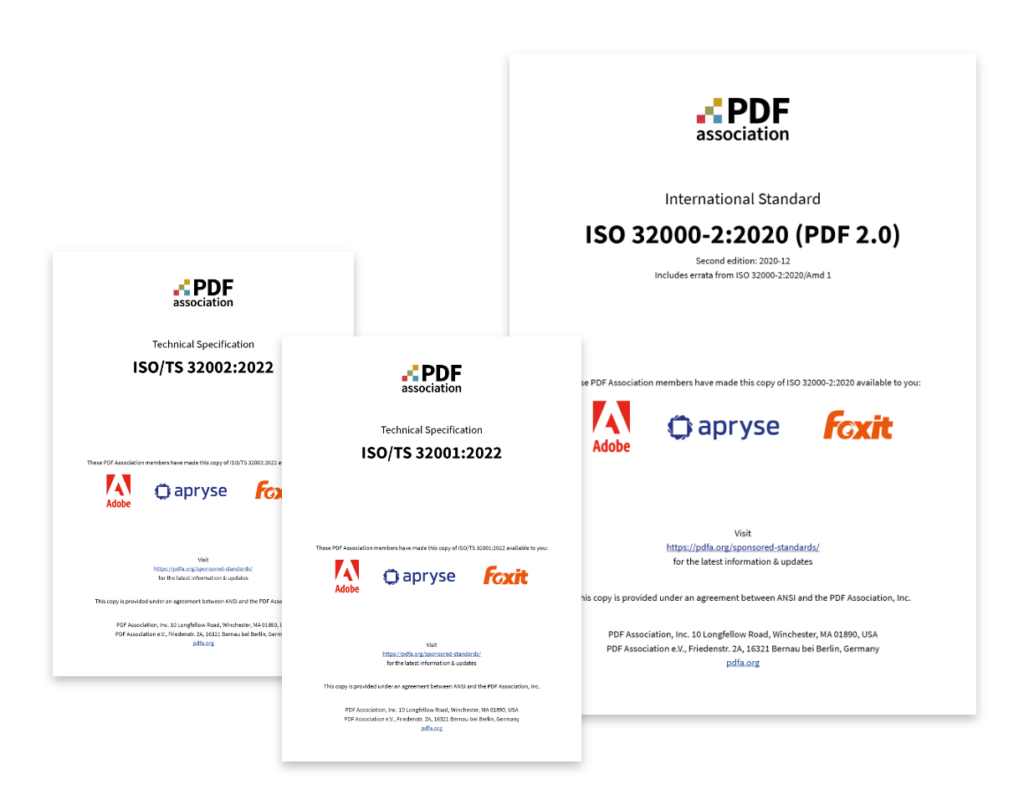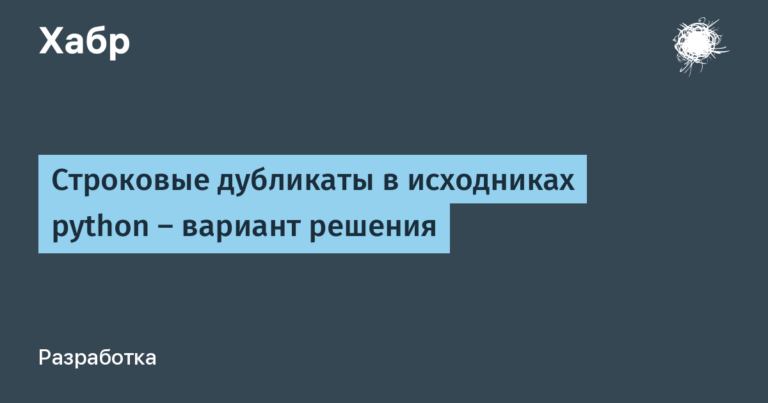Free access to PDF 2.0

At the beginning of the year, we asked ourselves why ISO standards are not published in the public domain, although this knowledge is necessary and useful for humanity? According to some representatives of the IT industry, paid access to documents is not the most effective policy. Especially when it comes to socially important standards, such as ISO 8601 – Representation of dates and times (in the online store the first part is sold for 166 francs) or ISO 639 – Codes for the representation of names of languages (also two parts) for CHF 166). Paid access is an artificial barrier that only gets in the way.
For individual standards, there are sponsors who pay ISO organizations the costs of making the documents available to the public. This also applies to new PDF 2.0 standards packageadopted in 2017-2022 (various parts), which replaced the previous versions of PDF 1.0-1.7.
In April 2023 the organization PDF Association announced opening free access to the latest ISO standard for PDF technology, ISO 32000-2 PDF Specification 2.0.
Now everyone can implement in their products a more technically advanced and secure version of PDF 2.0 with strong cryptography, without the bugs of previous versions of the standard.
Free access to ISO 32000-2
The following documents are included in sponsorship access:
- ISO 32000-2:2020 (available now)
- ISO 32000-2:2020/Amd 1 (Q2 2023)
- ISO/TS 32001:2022 (available now). This document defines how to extend the specifications in ISO 32000-2 by adding support for the use of the Secure Hash Algorithm – 3 (SHA-3) and SHAKE256 algorithms.
- ISO/TS 32002:2022 (available now) adds support for modern elliptic curve cryptography for digital signatures:
- NIST P-curve;
- Brainpool;
- Edwards Curve (EdDSA) Ed448 and Ed25519.
- NIST P-curve;
- ISO/TS 32003 (during 2023)
- ISO/TS 32004 (during 2023)
Since 1993, PDF developers have had open access to all current PDF specifications from 1.0 to 1.7, a fact that has been critical to PDF’s success as a platform and a global standard.
In 2017, ISO 32000-2 (PDF 2.0) was adopted, the first ever PDF standard to be developed entirely within a stakeholder-neutral ISO organization. That is, it is no longer an Adobe format, as it used to be, but an open universal format that belongs to the whole world. In a strange irony, since the first free version, PDF documentation has ceased to be free. For the first time PDF became free – and for the first time became paid. This is the policy of the ISO organization.
PDF 2.0 is the result of research and discussion by experts from around the world. It eliminates thousands of obscurities and bugs from previous Adobe specifications. The adoption of this free standard is critical to the industry, but the five years since the release of PDF 20 have shown that paywalls really make it hard for regular developers to access specs. Not everyone is willing to shell out $150 out of their pocket to read this document, or to search for it on torrents, which is just conceptually wrong.
As a result, by 2023 the following situation has developed:
- Much of the ecosystem is unable or unwilling to pay for expensive ISO publications. Without a free spec, it’s very hard to reach all of these developers.
- Corrections and clarifications in PDF 2.0 remain largely unimplemented, so newly created PDFs continue to contain bugs, and implementations retain bugs that were fixed by the industry years ago but only clarified in the latest specification.
- Developers and end users of PDF don’t know what they’re missing, as improved documentation, features, clarifications, and resolution of ambiguities are only available to licensees of ISO 32000-2.
So the PDF Association has decided to remove that hurdle—and make PDF 2.0 free for everyone. This was made possible through the sponsorship of Adobe, Apryse and Foxit.
Note. Free download involves the purchase of goods with zero cost through the basket with the introduction of a currency bank card. Therefore, for the convenience of readers, we post the files via direct links:
Unfortunately, sponsored access only applies to PDF. Other important programming and development standards are still only available for money, making them difficult to use and generally accepted.
Open Letter for Freedom of Standards
In our blog we
told
about publication
to ensure that all ISO standards are published in the public domain.
The authors note that ISO’s open standards policy has tightened:
- New editions of standards previously available for free are no longer freely available (Publicly Available Standards, PAS). Contributors to open source projects will use free legacy versions, which will cause compatibility issues. This is exactly what we see in the case of the paid PDF 2.0 standard, over which many people prefer the free PDF 1.6 or 1.7 documentation.
Note. One of the differences in PDF 2.0 is the increase in the minimum PDF file size from 213 to 251 bytes due to the introduction of a mandatory ID in the header (hash of the current time, file size and path):
%PDF-2.0 1 0 obj<</Count 0/Kids[]/Type/Pages>>endobj 2 0 obj<</Pages 1 0 R/Type/Catalog>>endobj xref 0 3 0000000000 65535 f 0000000009 00000 n 0000000053 00000 n trailer<</ID[( )( )]/Root 2 0 R/Size 3>> startxref 96 %%EOF
To avoid file fingerprinting, for ideological reasons, some open source developers may stay on the old PDF 1.7 format.
- Technical Reports (TRs) have recently been prohibited from being published free of charge under any circumstances, as they are no longer considered standards. Thus, the specialists who took part in the compilation of some PR and standards were deceived in the expectation of their future public availability.
- ISO is pressuring other standards organizations with which it collaborates that have a public standards policy (such as ITU-T) to change their policies to remove collaborative documents from the public domain free of charge.
Thus, the adoption of new standards by a wide audience is difficult, and their quality may suffer.
According to report for 2021ISO and its national affiliates earned CHF 20.1 million from sales of publications and royalties, as well as CHF 21.4 million from membership fees.
By opinion For some specialists, the paywall prevents the standards from being generally adopted, making it impractical for millions of amateur programmers to access them and even understand what the standard is. Failure to be transparent also reduces the credibility of these standards. Activists of the Open Source and Open Access movements (Open Data) propose to introduce free access to the entire ISO library, and to compensate for the shortfall in income with membership fees.
Anyone can sign the petition by editing document Google Docs. This has already been done by dozens of well-known developers, experts from the committees of ISO / IEC, W3C, IETF and so on.



